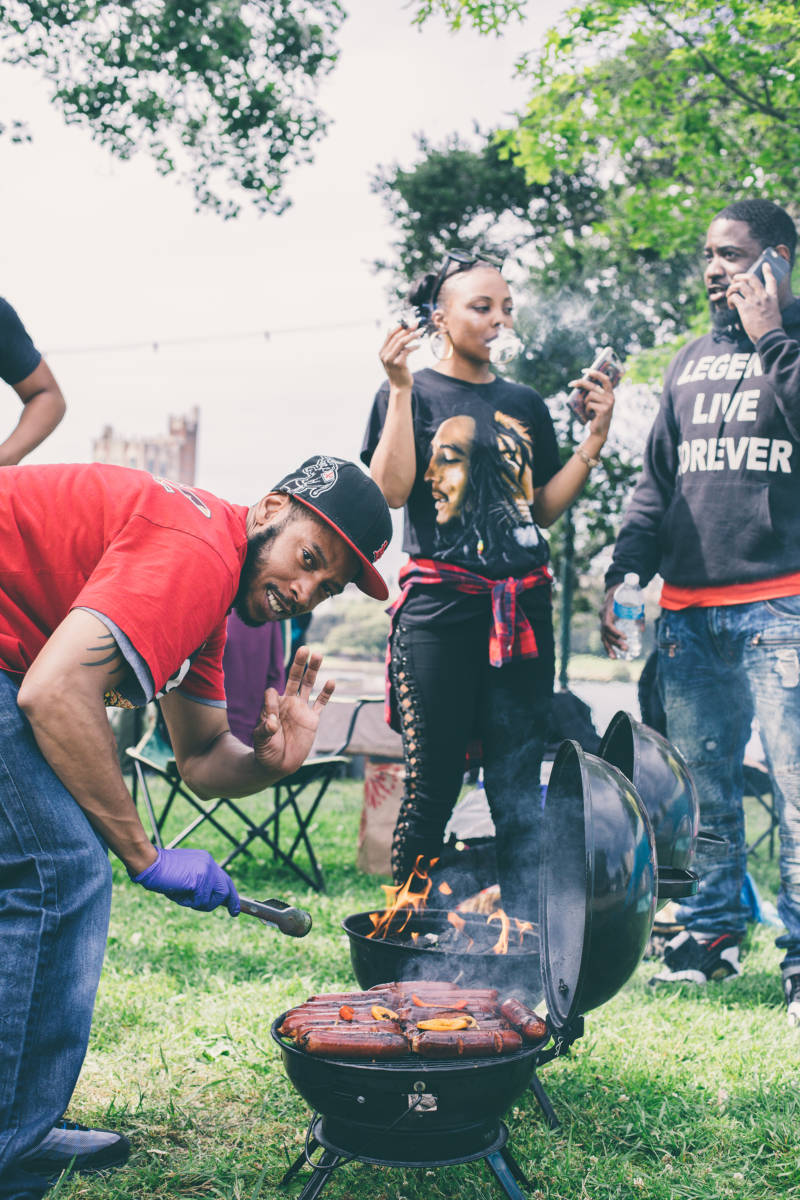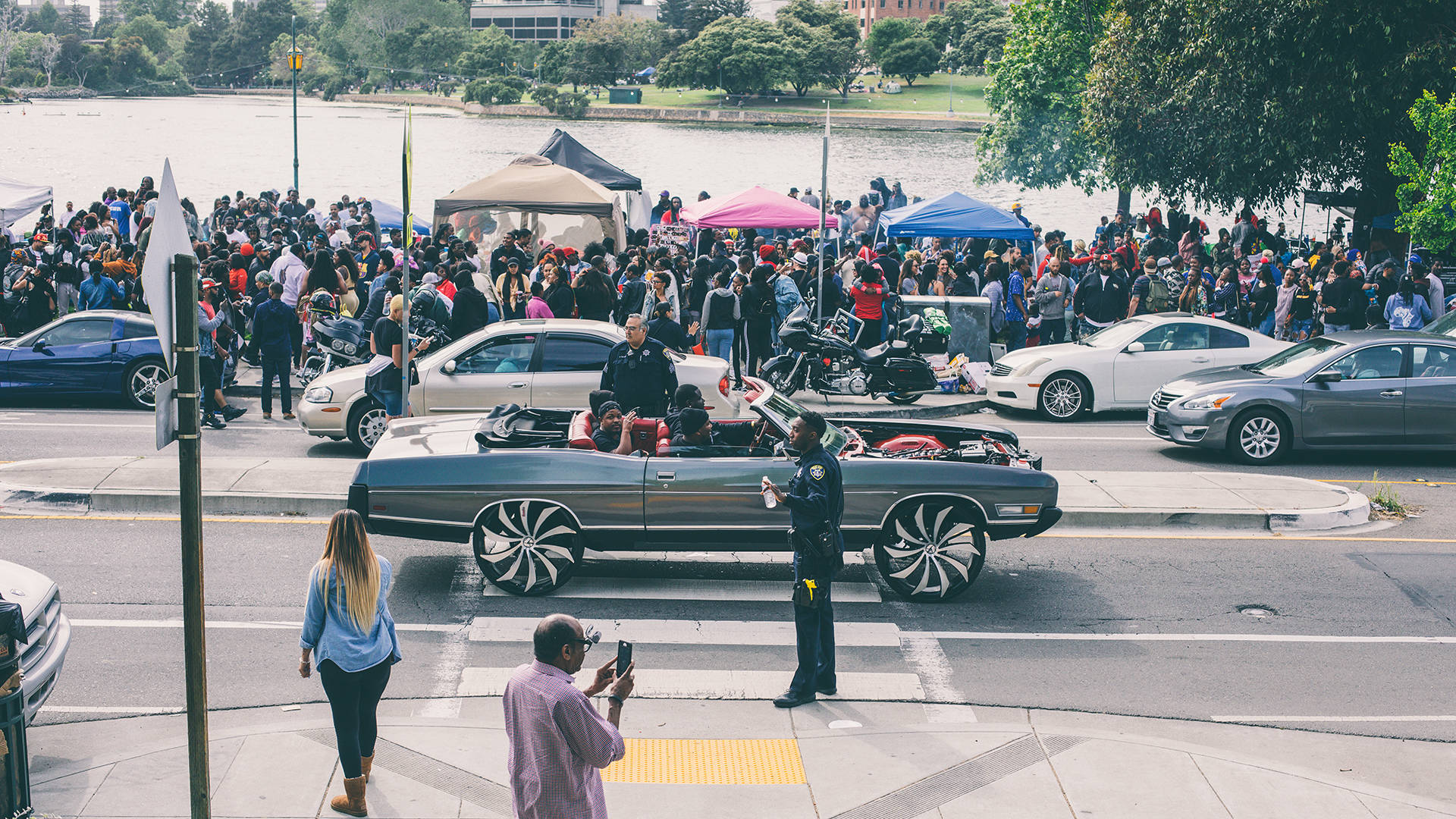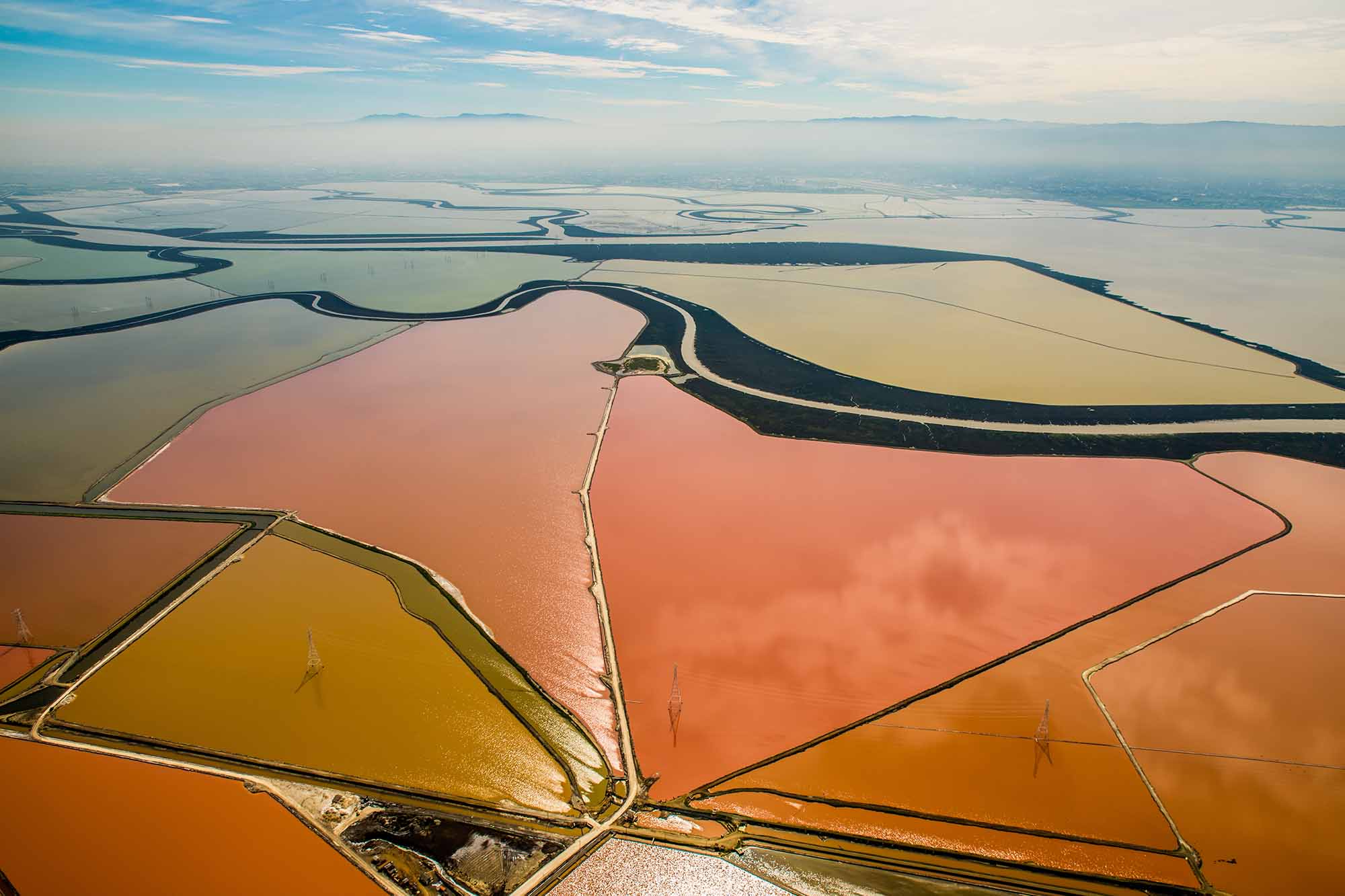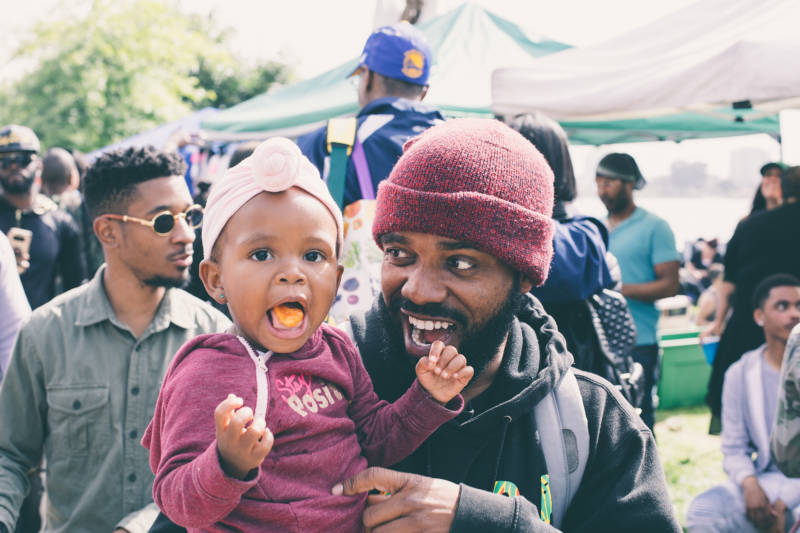Earlier this month, when a white woman named Jennifer Schulte called the police to complain about black Oakland resident Kenzie Smith’s barbecue at Lake Merritt, she had no idea she was about to create a firestorm.

In the video Smith’s wife, Michelle Dione, captured of the incident, Schulte stayed on the phone with police for hours, at one point claiming that she felt threatened. In the end, no charges were filed and no citations were issued. Instead, the video of Schulte’s racially charged complaint was blasted all over the internet, featured on numerous news outlets, put in the social media meme hall of fame and even parodied in the closing credits of this past week’s Saturday Night Live.
Jhamel Robinson, owner of The Real Oakland apparel line, saw the incident as an opportunity to reignite the flame of community empowerment that makes Oakland, Oakland.

Along with Logan Cortez, Robinson organized a protest unlike any other: a barbecue protest. On May 20, Oakland’s African-American residents came out to Lake Merritt in force for “BBQ’n While Black,” making their presence felt while enjoying a hot link or two.




